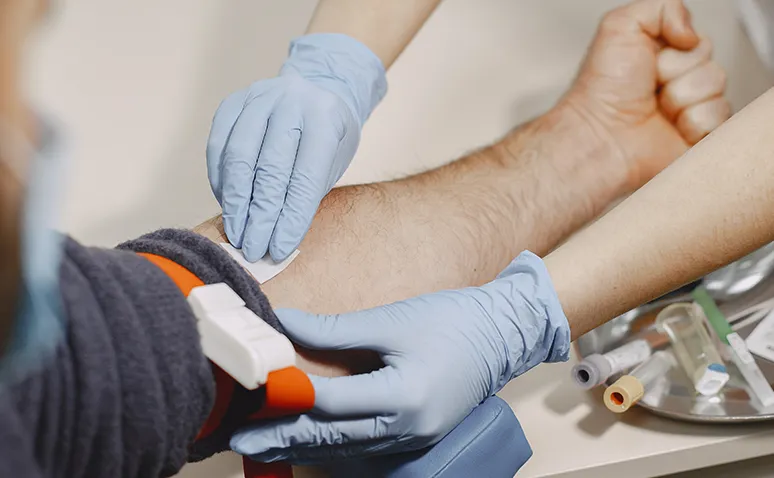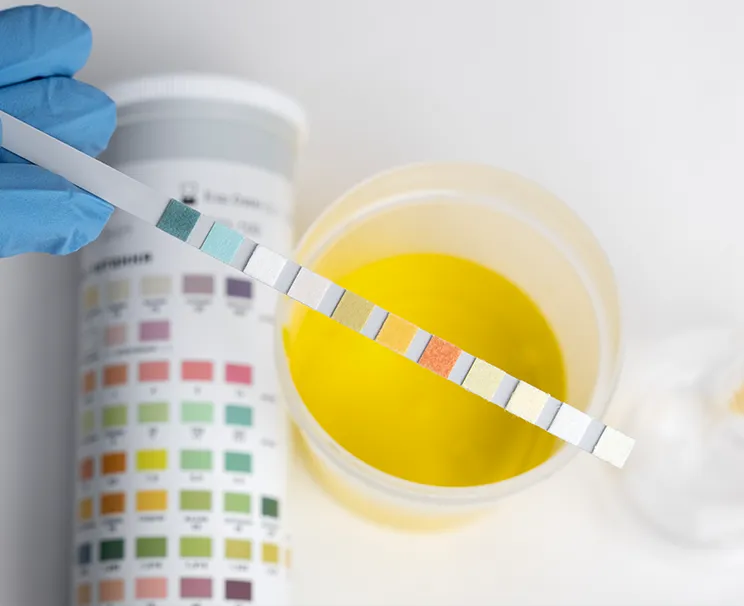Screening test is used during pregnancy to check the baby’s health in advance. The scope of the test varies depending on the mother’s age, medical history, and risk status. This test does not provide definitive results but is intended to identify potential health concerns.
Screening test can be applied at different stages of pregnancy. In the first trimester, the double test assesses hormone levels and ultrasound findings to estimate the risk of chromosomal abnormalities. In the second trimester, triple or quadruple screening tests are typically used. These tests are important for early diagnosis and preventive care and are widely employed in prenatal practice.
How Is the Screening Test Performed?
Screening test is a prenatal procedure that helps determine whether the baby is at risk for a genetic or chromosomal disorder. To perform the test, a blood sample is taken from the expectant mother, and the pregnancy status is evaluated in detail through ultrasound.
It is particularly used to estimate the risk of babies with Down syndrome, trisomy 18, and trisomy 13. Screening tests are not diagnostic tests; in other words, they do not directly diagnose a disease, but provide a risk assessment.
The question of when to take a screening test is one that many expectant mothers wonder about. The double screening test, one of the most common, is performed between the 11th and 14th weeks of pregnancy. In this test, certain hormone levels in the mother’s blood are measured, and ultrasound is used to assess fetal markers like nuchal translucency. Based on these data, the likelihood of the baby having a genetic condition is evaluated.

The accuracy and reliability of the screening test depend on several factors. The mother’s age is especially critical in the analysis. Since genetic anomalies are more common in pregnancies over the age of 35, diagnostic tests are also recommended alongside screening for this age group.
Key elements evaluated during screening tests include:
- Confirmation of gestational age
- Body mass index
- Hormone levels measured in the blood
- Ultrasound measurements of nuchal translucency and nasal bone
The results of the screening test, based on these data, are thoroughly evaluated by obstetricians and gynecologists. If screening results indicate a high risk, advanced tests (such as amniocentesis or CVS) are recommended. This enables early diagnosis and planning for at-risk babies.
Screening tests are a crucial step for every expectant mother and play an important role in ensuring a safe pregnancy.
Frequently Asked Questions
Screening tests do not directly detect chromosomal anomalies in the baby. Instead, they assess risk levels and determine whether diagnostic tests should be recommended.
If a high-risk factor is identified, your doctor may refer you for advanced diagnostic tests such as amniocentesis or CVS (chorionic villus sampling). These tests provide definitive genetic results.
- The double test is a basic screening performed in the first trimester.
- The triple test is done in the second trimester and measures three hormone levels.
- The quadruple test evaluates an additional marker, inhibin-A, offering a more precise risk analysis.
No, screening tests are entirely non-invasive. They involve only blood samples and ultrasound measurements and pose no physical risk to the mother or baby.
Screening tests are not legally mandatory; however, gaining information in the early stages of pregnancy allows families to make informed decisions. They are especially recommended for advanced maternal age pregnancies.
For more information and to schedule an appointment about double, triple, and quadruple screening tests, you may contact Denge Tıp.











